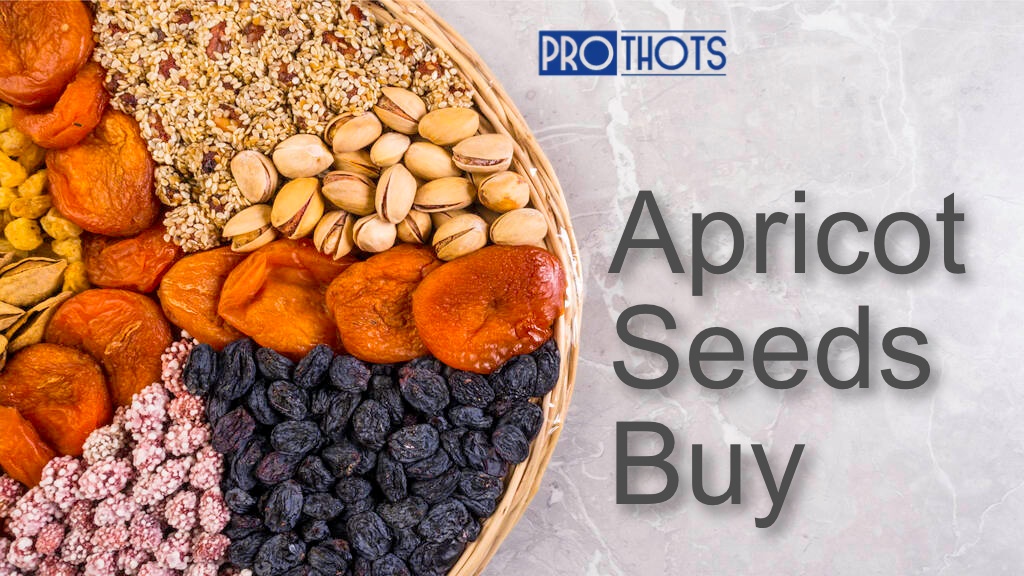Blog
Exploring the Power of Apricot Seeds

Welcome to the intriguing world of apricot seeds, a traditional nutritive powerhouse with a myriad of potential health benefits. Often overshadowed by the juicy flesh of their fruit, these seeds have been gaining the attention of nutrition enthusiasts and health pundits alike. Unraveling their potential requires a closer look at their nutritional profile, medicinal history, and scientific research surrounding their uses. Keep reading to discover the various facets of apricot seed benefits and how you can incorporate them into your daily routine.
The Surprising Nutritional Benefits of Apricot Seeds

Apricot seeds may be small, but they are mighty when it comes to nutritional value. They are known to be rich in protein, fiber, and a plethora of essential minerals, such as potassium, magnesium, and iron. Their high fiber content is particularly beneficial for maintaining digestive health and helping to prevent constipation.
- Apricot seeds contain vitamin B17, also known as amygdalin or laetrile, which is reputed for its antioxidant properties.
- Antioxidants are crucial in combatting oxidative stress and helping to preserve the health of cells.
- The presence of healthy fats, such as omega-3 and omega-6 fatty acids, adds to their nutritional resume, supporting heart health and reducing inflammation.
While nutritional benefits are clear, many are unaware of the potential toxicity of eating apricot seeds in large quantities due to the presence of cyanide. It’s crucial to understand safe consumption practices. For those looking for apricot seeds buy them from a company that prioritizes sourcing and quality.
Exploring the Ancient Use of Apricot Seeds in Traditional Medicine

Long before modern nutritional science came into the picture, apricot seeds were already being used in various traditional medicinal systems. In ancient China, they were a key herbal remedy, believed to alleviate respiratory issues and improve skin health. Many traditional practitioners valued the seeds for their expectorant properties, providing relief in cases of cough and bronchitis.
- Traditional healing narratives have alluded to apricot seeds’ potential role in boosting immunity and enhancing energy levels.
- Despite a lack of empirical evidence to back many of these claims.
- The persistence of these beliefs highlights the need for modern research to explore the veracity of such traditional knowledge.
As the intersection of traditional medicine and contemporary science continues to evolve, the role that apricot seeds have played in historical health practices provides a rich tapestry for further exploration and understanding.
Understanding the Safety and Proper Dosage of Apricot Seed Consumption

In the age of information, misconceptions about apricot seeds can spread rapidly, making it imperative to separate fact from fiction. A common myth is that consuming apricot seeds can lead to acute cyanide poisoning. While it is true that apricot seeds contain compounds that can produce cyanide, poisoning is typically associated with the intake of large quantities.
- Regulatory bodies and health professionals urge caution, recommending extremely limited consumption if any at all.
- The official stance often errs on the side of caution, suggesting individuals abstain from eating apricot seeds due to the associated risks.
Some natural health proponents advocate for the controlled use of apricot seeds, emphasizing the purported health benefits. They claim that when consumed in moderation and under professional guidance, the seeds can be a beneficial addition to a healthy diet.
Tips and Recipes Apricot Seeds Into Your Diet

For those intrigued by the health potential of apricot seeds, integrating them into the diet requires care and thought. One way to include them is by adding a small number of ground seeds to smoothies, yogurts, or cereals. This can enhance the nutritional content with its protein and healthy fats without overindulging.
- Another creative method is to incorporate apricot seeds into homemade trail mixes or granolas, which can offer a satisfying crunch and a nutty flavor.
- When used sparingly, they can complement the sweetness of dried fruits and the richness of nuts perfectly.
- Apricot seeds can also be used in baking, whereby ground seeds can contribute to the texture
- Flavor profile of bread, muffins, and cookies. However, due to their bitter taste, they should be used judiciously to balance the overall palate.
The potential health benefits of apricot seeds are intriguing, with historical use in traditional medicine and ongoing research into their possible role in disease prevention. However, it’s critical to approach apricot seeds with an understanding of their risks and to consume them with prudence, always under the guidance of a healthcare professional. By doing so, you may unlock a new dimension in your pursuit of a balanced and healthful diet.
